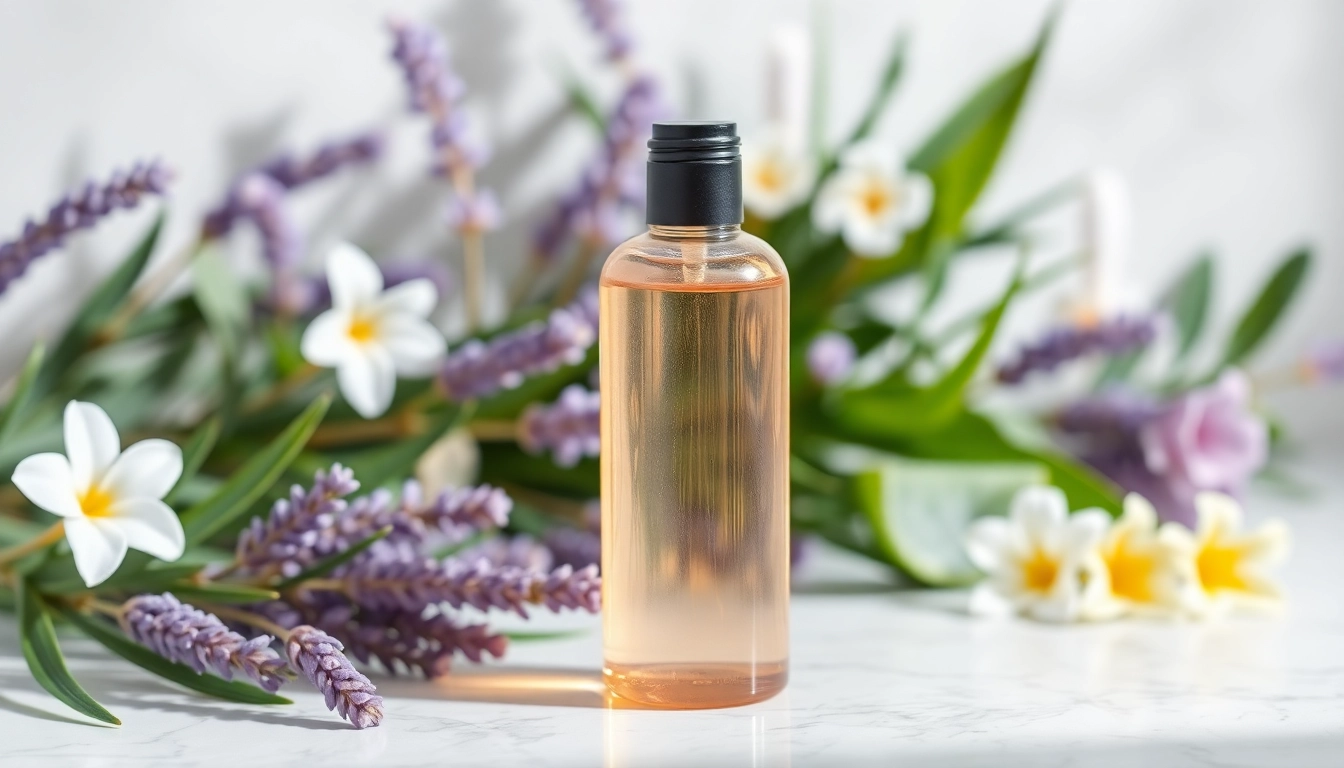Understanding Hair Thinning: Causes and Solutions
Hair thinning is a common concern among both men and women. It can manifest as gradual hair loss, increased strands in your hairbrush, or a widening part line, signaling that your locks are becoming less dense. The causes of hair thinning are multifaceted, ranging from genetics to environmental factors and various lifestyle choices. Finding an effective hair thinning shampoo can be a game-changer in your hair care routine. In this article, we will dive deep into the causes of hair thinning, effective ingredients to counteract hair loss, and the best practices for maintaining a healthy mane.
Common Causes of Hair Thinning
Understanding the underlying causes of hair thinning is essential for effective treatment. Some of the most prevalent causes include:
- Genetics: Hereditary factors play a significant role in hair thinning. Conditions such as androgenetic alopecia, commonly known as male or female pattern baldness, can lead to substantial hair loss over time.
- Hormonal Imbalances: Hormones dictate many bodily functions, and imbalances—caused by factors such as pregnancy, menopause, or thyroid issues—can lead to unexpected hair thinning.
- Nutritional Deficiencies: Lack of essential nutrients such as iron, zinc, and proteins can hinder hair growth and maintenance. A balanced diet is crucial for strong, healthy hair.
- Stress: Emotional or physical stress can push hair follicles into a resting phase, leading to noticeable hair shedding. Chronic stress can exacerbate this issue.
- Medical Conditions: Certain medical conditions, including autoimmune diseases, can trigger hair loss. Consulting with health professionals can help rule out these factors.
How Lifestyle Affects Hair Health
Our daily choices significantly impact hair health. Lifestyle factors that contribute to hair thinning include:
- Diet: A diet lacking in essential nutrients can affect hair vitality. Incorporate foods rich in vitamins A, C, D, and E, along with omega-3 fatty acids, to bolster hair health.
- Hair Care Practices: Overuse of heat styling tools, harsh chemicals, and tight hairstyles can wreak havoc on hair integrity, leading to breakage and thinning.
- Sleep Quality: Quality of sleep significantly influences overall health, including hair growth. A consistent sleep pattern and a stress-reducing nighttime routine can promote healthy hair.
- Smoking and Drinking: Both smoking and excessive alcohol consumption are linked to decreased blood flow and nutrient delivery to hair follicles, leading to hair thinning.
When to Seek Professional Help
While occasional hair thinning is normal, it’s crucial to recognize when professional help is needed. Seek advice from healthcare professionals in the following situations:
- If you notice sudden or patchy hair loss, especially if accompanied by other symptoms such as itching, pain, or scaling of the scalp.
- If hair thinning occurs after the start of a new medication.
- If you experience an increase in hair shedding every day over an extended period, indicating a more serious underlying issue.
Ingredients to Look for in Hair Thinning Shampoo
Choosing the right hair thinning shampoo can significantly impact your hair’s health. Here are key ingredients to consider:
Natural Oils and Their Benefits
Natural oils are revered for their nourishing properties. Here are some oils to look for:
- Argan Oil: Rich in antioxidants and essential fatty acids, argan oil hydrates hair and promotes shine, helping to prevent breakage.
- Jojoba Oil: Similar in composition to scalp sebum, jojoba oil helps moisturize follicles and can combat dryness without clogging pores.
- Coconut Oil: Known for its ability to penetrate the hair shaft, coconut oil strengthens hair and reduces protein loss during washing.
Vitamins and Nutrients Essential for Hair
Incorporating shampoos infused with vitamins can offer additional benefits:
- Biotin: Often nicknamed the “hair growth vitamin,” biotin aids in keratin production and contributes to stronger hair.
- Niacin: Also known as vitamin B3, niacin improves blood circulation to the scalp, promoting healthier hair growth.
- Pantothenic Acid: Vitamin B5 helps moisturize hair and is effective in preventing hair thinning.
Choosing Sulfate-Free Options for Gentler Care
Sulfates, commonly found in many shampoos, can strip hair of its natural oils. Opting for sulfate-free products can be gentler on the hair and scalp, helping to maintain moisture and overall health. Conditioners containing natural emulsifiers can help provide a rich, luxurious feel to the hair without harsh chemicals.
How to Choose the Right Hair Thinning Shampoo
Selecting a shampoo tailored for thinning hair involves more than just checking the label. Follow these guidelines:
Assessing Your Hair Type and Concerns
Your individual hair type—be it oily, dry, or combination—plays a crucial role in selecting products. For example, if you know your scalp tends to be oily, look for light, volumizing formulas that cleanse effectively without stripping vital oils. On the other hand, those with dry or damaged hair might benefit from more moisturizing shampoos rich in hydrating ingredients.
Reading Labels: What to Avoid
Familiarize yourself with the ingredients in your shampoo. Avoid products containing:
- Sulfates: Generally considered too harsh, they can dry out the hair.
- Parabens: These preservatives can potentially disrupt hormone function.
- Alcohol: Certain alcohols can dehydrate and damage hair.
Understanding Product Reviews and Recommendations
Before making a final decision, consult user reviews and expert recommendations. Look for products that have gained positive feedback for effectiveness in treating hair thinning while catering to your specific hair needs. Platforms like beauty blogs, forums, and videos can offer insights into real-world results and help guide your choice.
Best Practices for Application and Hair Care
Using hair thinning shampoo effectively requires adherence to best practices. Here are some tips:
How to Use Hair Thinning Shampoo Effectively
Proper application of shampoo can enhance its effectiveness. Follow these steps:
- Wet your hair thoroughly with lukewarm water to open up the hair cuticle.
- Apply a quarter-sized amount of shampoo to the scalp and gently massage with your fingertips, avoiding the use of nails to prevent irritation.
- Focus on the scalp, as this is where hair follicles reside; let the shampoo sit for a few minutes for better absorption.
- Rinse thoroughly and follow up with conditioner specifically designed for hair thinning, allowing it to nourish the hair left after washing.
Complementary Hair Care Products to Consider
Pairing your shampoo with suitable conditioners and treatments can enhance results. Consider integrating:
- Leave-In Conditioners: These can provide extra moisture and protection against environmental stressors.
- Hair Masks: Weekly treatments can deeply nourish and strengthen hair.
- Hair Serums: Formulated to target thinning and promote shine, serums can be beneficial as a finishing touch.
Creating a Hair Care Routine: Tips for Success
Establishing a solid hair care routine is essential. Consider the following:
- Be consistent with product use, giving time for results to manifest.
- Incorporate a balanced diet and hydration to support hair from the inside out.
- Regularly trim hair to eliminate split ends and damage, promoting healthier growth overall.
Tracking Progress: Measuring Effectiveness of Hair Thinning Solutions
Understanding the success of your chosen products is key to your journey toward healthier hair.
Signs of Improvement: What to Look For
As you implement your new hair care routine, look for the following signs of improvement:
- Less hair shedding during washing and styling.
- A thicker and fuller appearance of your hair over time.
- Enhanced overall shine and texture.
Consulting Professionals for Hair Assessments
Regular consultations with hair specialists can help in assessing progress and adjusting your routine as necessary. They can offer personalized advice based on your scalp condition and hair type, recommending any needed changes in product or technique.
Adjusting Your Routine Based on Feedback
Listening to your hair is crucial. Note any changes in hair condition and be willing to adjust products or your routine accordingly. If certain products cause irritation or negative reactions, discontinue their use and consult a professional for alternatives.








